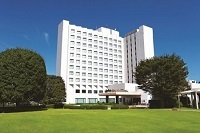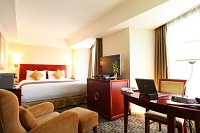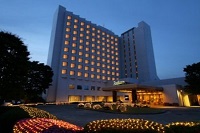Venue & Hospitality
Address: 650-35 Nanae, Tomisato, Chiba Prefecture 286-0221, Japan
Address: 31 Oyama, Narita, Chiba Prefecture 286-0131, Japan
Conference Dates: August 22-23, 2018
Hotel Services & Amenities
- Audio/Visual Equipment Rental.
- Business Center.
- Business Phone Service.
- Complimentary Printing Service.
- Express Mail.
- Fax.
- Meeting Rooms.
- Office Rental.
- Photo Copying Service.
- Secretarial Service.
- Telex.
- Typewriter.
- Video Conference.
- Video Messaging.
- Video Phone.
- ATM.
- Baggage Storage.



Transportation
Driving Directions to
Route Map
About City
Tokyo (æ±äº¬, TÅkyÅ) is Japan's capital and the world's most populous metropolis. Tokyo, Japan’s busy capital mixes the ultramodern and the traditional, from neon-lit skyscrapers to historic temples. The opulent Meiji Shinto Shrine is known for its towering gate and surrounding woods. The Imperial Palace sits amid large public gardens. The city's many museums offer exhibits ranging from classical art (in the Tokyo National Museum) to a reconstructed kabuki theater (in the Edo-Tokyo Museum).
Prior to 1868, Tokyo was known as Edo. A small castle town in the 16th century, Edo became Japan's political center in 1603 when Tokugawa Ieyasu established his feudal government there. A few decades later, Edo had grown into one of the world's most populous cities. With the Meiji Restoration of 1868, the emperor and capital moved from Kyoto to Edo, which was renamed Tokyo ("Eastern Capital"). Large parts of Tokyo were destroyed in the Great Kanto Earthquake of 1923 and in the air raids of 1945.
It is also one of Japan's 47 prefectures, consisting of 23 central city wards and multiple cities, towns and villages west of the city center. The Izu and Ogasawara Islands are also part of Tokyo.
Tokyo is a mega-metropolis of dizzying contradictions, both familiar and foreign. It has neon, skyscrapers, and salary man crowds, packed trains, cutting-edge architecture and futuristic technology. But it also has ancient shrines, plant-covered wooden houses, cycling grannies, old-school sweet shops and village-like lanes. It is one of the planet’s most densely populated cities (as any rush-hour train journey will demonstrate), with a hyperactive skyline that changes as regularly as the sun rises and sets. Yet it is also a city rooted in its traditions and in possession of a calm and efficient rhythm that belies its sprawling dimensions. And even though its home to a 13 million-plus population, trains run on time, there is no public litter and street crime is near non-existent. In short, it works. Another key enticement is the food – from sushi to soba, and everything in between. Tokyo is a nirvana for foodies, and has the world’s highest volume of Michelin stars in a city. Shopping is another highlight its worth bringing an empty suitcase to fill with hard-to-resist gadgets, trendsetting garments and treasures from craft and design stores.
